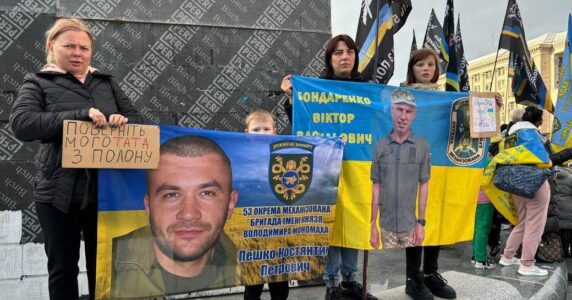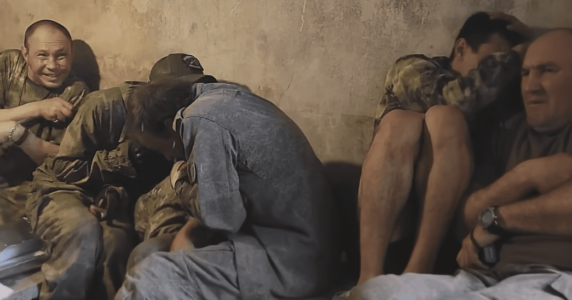Navigation and useful materials
Russia is actively promoting the idea of holding “peace talks” through its representatives and agents of influence. However, those who are called “peacekeepers” often emphasize the need to encourage Ukraine to start negotiations by limiting its military and economic support. In fact, implementing their proposals can lead not to sustainable peace, but to new victims. The Russians and their agents of influence are well aware of what they actually suggest and cynically promote their agenda.
How does the Kremlin induce Ukraine to peace talks?
Talks about “negotiations” by the Russians intensified after a number of painful losses of the Russian army in Ukraine, in particular, after the expulsion of the invaders from Kharkiv Oblast (before that there were “gestures of goodwill” in Kyiv, Chernihiv, Sumy oblasts, on the Snake Island, as well as the “loss of stability” of the Moskva cruiser). That is, after the Russians lost their strategic initiative on the battlefield.
In particular, since autumn 2022, such statements have been repeatedly voiced by Russian propagandists and officials.
For example, in autumn 2022, this was mentioned by Dmitry Peskov, Kremlin spokesman; Sergei Lavrov, Russian Foreign Minister; Sergei Naryshkin, Head of the Foreign Intelligence Service of the Russian Federation; and Leonid Slutsky, Chair of the State Duma Committee on International Affairs, LDPR leader; as well as at the summit of speakers of the G20 parliaments in Indonesia; the same statements were voiced by Valentina Matvienko, the Chairwoman of the Federation Council of the Russian Federation.
In September 2022, Putin expressed similar ideas in an address on the illegal annexation of the occupied territories, as well as during meetings with Turkish President Recep Tayyip Erdoğan and Indian Prime Minister Narendra Modi at the Summit of the Shanghai Cooperation Organisation in Samarkand.
In October 2023, at a session of the World Economic Forum, Putin also made similar proposals.
At a meeting with Orban in China on October 18, 2023, and during the G-20 online summit on November 22, 2023, similar proposals were voiced.

The same topics were mentioned by Putin during the “direct line” on December 14, 2023.
The proposals of the “negotiations” are also voiced by both Putin’s friends (Lukashenko, Orbán) and by political leaders who want to increase their importance in the international arena (presidents of South Africa Cyril Ramaphosa and Brazil Lula da Silva).
The Kremlin and its friends shift the blame for the lack of a peaceful resolution to Kyiv and President Zelenskyy personally, and also mention Washington (promoting the old narrative of “external governance”).
In autumn 2023, Putin repeatedly spoke about the need to overturn the decision of the NSDC of Ukraine on the impossibility of negotiations with him. The dictator calls this decision “Zelenskyy’s decree” to shift the responsibility for a collective decision to one person and portray the President of Ukraine as “the only obstacle to peace.”
All this, despite the fact the Ukrainian authorities since 2014, President Zelenskyy since 2019, and Western countries until 2022 were searching for opportunities to prevent escalation and come up with a political resolution of the conflict (the Minsk process, the Normandy Four); the decision to launch a full-scale war was adopted in the Kremlin, not in Kyiv, Brussels, or Washington.
Why do propagandists promote negotiations talks?
After losing their strategic advantage at the front, Russian propagandists increased anti-Ukrainian hysteria, justifying genocide, thinking of a nuclear strike, and at the same time persuading Ukraine to “negotiate.” There are several obvious reasons for this. First, the Russians are interested in an operational pause that will allow them to prepare for a new strike: to restore units, replenish stocks of weapons and ammunition through their own military-industrial complex and assistance from the friendly dictatorial regimes of Belarus, Iran, and North Korea.
Secondly, the Kremlin is trying to secure the temporarily occupied territories, politically formalize the new lines of demarcation, and be able to accuse Ukraine of an escalation for any attempts to restore territorial integrity.
Thirdly, the Russians are trying to shift the responsibility for the war to Ukraine, demonstrating their alleged willingness to compromise in contrast to Kyiv’s “unwillingness to negotiate.” The Kremlin hopes that the West will begin to put pressure on Ukraine to end the war by satisfying the aggressor’s appetites. That is why these proposals are voiced on international platforms.
The Russians will attempt to use the time gained to achieve an even greater numerical advantage over the Ukrainian army and to prepare for new offensives.
Why are the “peace” initiatives of the Kremlin unanswered?
Both Ukraine and Western partners understand the insincerity of the statements of the Kremlin leadership and the interest of the Russians in an operational pause. The attempt to annex four Ukrainian oblasts once again demonstrated the total disregard for international law and Ukrainian sovereignty and the Kremlin’s unwillingness to engage in a genuine dialogue.
Ukraine has repeatedly declared intentions for peace initiatives, both before and after the full-scale invasion.
But after the Paris summit of the Normandy Four, held in December 2019, Putin lost interest in meetings with Ukrainian President Volodymyr Zelenskyy.
On the eve of the invasion, Western leaders urged the Russian dictator not to commit a fatal mistake. President Zelenskyy expressed readiness for direct negotiations with Putin, but this initiative was rejected by the Kremlin. In the early days of the full-scale war, the Ukrainian President repeatedly publicly appealed to Putin with an offer to negotiate.
The Russians conducted negotiations between the delegations of Ukraine and Russia, which took place in March in Belarus and Turkey, from a position of strength, putting forward knowingly unacceptable demands.
Even today, after a series of painful losses of the Russian army, the Kremlin talks about negotiations exclusively “on its own terms,” without naming them, thus demonstrating that the only acceptable format for Russia is the surrender of Ukraine.
On September 30, the National Security and Defence Council of Ukraine responded to Russia’s proclamation of the annexation of Kherson, Zaporizhzhia, Donetsk, and Luhansk oblasts with a decision stating “the impossibility of negotiations with Russian President Putin.” On the same day, Volodymyr Zelenskyy put this decision into effect by his decree. The Ukrainian president confirmed his readiness to negotiate with the next leader of Russia in his video address.
Thus, the current Russian political leadership convinced Ukraine and its partners not only of the meaninglessness, but also of the danger of negotiations and agreements with the Kremlin. Therefore, negotiations are impossible given that:
● the motives of Russians are obvious: the Kremlin demonstrates that it does not abandon the goal of destroying the Ukrainian state and Ukrainians as a nation;
● the aggressor’s actions are aimed at destroying the current world order and international security system;
● the Russian leadership speaks exclusively the language of ultimatums and is unwilling to negotiate;
● reinforcing the Russian army during the operational pause will lead to new casualties and destruction;
● Russia is committing genocide of Ukrainians in the occupied territories. The killings of civilians, torture, rape, deportation of the civilian population and forced mobilization are far from a complete list of recorded war crimes of the Russians. Only the expulsion of the occupiers can save lives.
● The “peacemaking” initiatives of Putin and his associates should not mislead anyone. By proclaiming another annexation, announcing mobilization, and nuclear blackmail, the Russian leadership clearly demonstrates its aggressive intentions. Negotiation proposals are nothing more than an attempt to buy time to prepare for a new stage of aggression.
Just as the Minsk agreements in 2014-2015 did not lead to sustainable peace, any new attempts to negotiate with Putin are doomed to failure. But if the Minsk agreements allowed to transfer the war in the Donbas into the format of a low-intensity conflict and postpone the full-scale invasion for several years, this time, it is a matter of a few months. This is how long it will take to form and coordinate new connections after mobilization in Russia.
If you have found a spelling error, please, notify us by selecting that text and pressing Ctrl+Enter.


